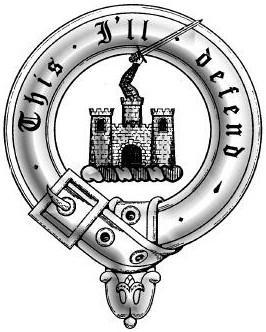The Framers and the Faithful
Thomas Jefferson stood, dressed in a black suit, in a doorway of the White House on Jan. 1, 1802, watching a bizarre spectacle. Two horses were pulling a dray carrying a 1,235-pound cheese—just for him. Measuring 4 feet in diameter and 17 inches in height, this cheese was the work of 900 cows.
More impressive than the size of the cheese was its eloquence. Painted on the red crust was the inscription: “Rebellion to tyrants is obedience to God.” The cheese was a gift from religious leaders in western Massachusetts.
It may seem surprising that religious leaders would be praising Jefferson, given that his critics had just months earlier been attacking him as an infidel and an atheist. In the 1800 election, John Adams had argued that the Francophile Jefferson would destroy America's Christian heritage just as the French revolutionaries had undermined their own religious legacy. Adams supporters quoted Jefferson's line that he didn't care whether someone believed in one god or 20, and they argued that the choice in the election was: “God—And a religious president...[or] Jefferson—and no God.”
But in a modern context, the most remarkable thing about the cheese is that it came from evangelical Christians. It was the brainchild of the Rev. John Leland—a Baptist and, therefore, a theological forefather of the Rev. Jerry Falwell and Franklin Graham. Even though Jefferson was labeled anti-religion by some, he had become a hero to evangelicals—not in spite of his views on separation of church and state, but because of them. By this point, Jefferson had written his draft of the Virginia statute of religious freedom, and he and James Madison were known as the strictest proponents of keeping government and religion far apart. Because Baptists and other evangelicals had been persecuted and harassed by the majority faiths—the Anglicans in the South and the Puritan-influenced Congregationalists in the North—these religious minorities had concluded that their freedom would only be guaranteed when majority faiths could not use the power of the state to promote their theology and institutions.
Each side of our modern culture wars has attempted to appropriate the Founding Fathers for their own purposes. With everything from prayer in school to gay rights to courtroom displays of the Ten Commandments at stake, conservative and liberal activists are trying to capture the middle ground and win over public opinion. Portraying their views as compatible with—even demanded by—the Founding Fathers makes any view seem more sensible, mainstream, and in the American tradition. And in truth, you can find a Jefferson or Adams quote to buttress just about any argument. But there are a few facts that might actually be stipulated by both sides in the culture wars. First, the original Constitution really didn't say all that much about religion. God is not mentioned, and the only reference to religion is a ban on providing religious tests for holding office. (Ask why, and the arguments would resume with fury: Conservatives say the Founders left it out because they wanted the states to regulate religion; liberals say it was because the framers were secularists who wanted strict separation between religion and government).




0 Comments:
Post a Comment
<< Home